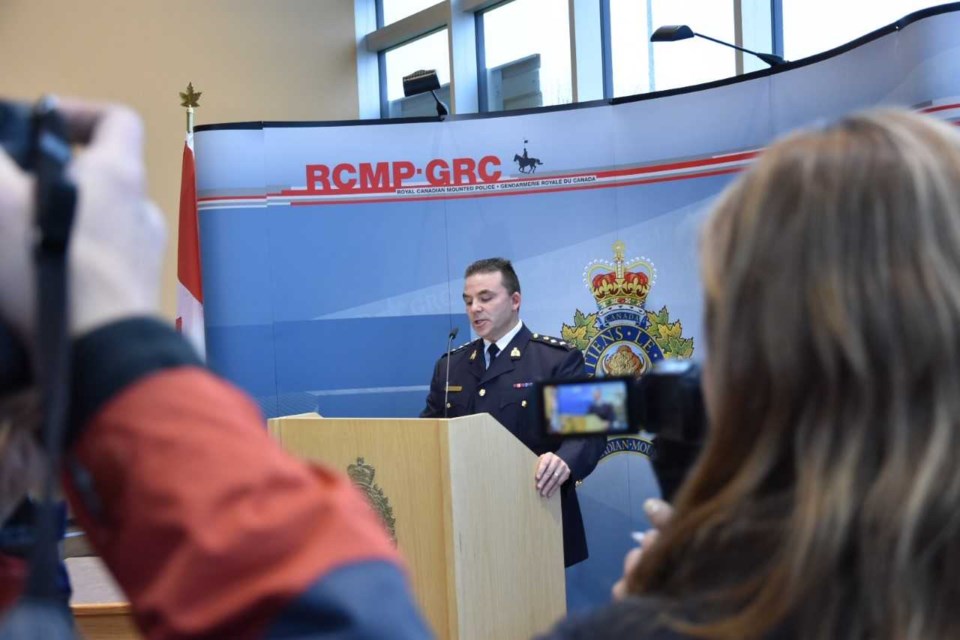Cochrane RCMP has increased its capacity to handle impaired drivers now that cannabis is legal. Cpl. Richard Nowak, provincial co-ordinator of the Drug Recognition Expert program said there are multiple tools in determining sobriety – some new such as screening machines like the Dräger 5000 and standard testings already in place for roadside assessments. Three RCMP members in the Cochrane detachment are trained in Standardized Field Tests (SFTs) – five-minute roadside tests like walk and turns and standing on one leg – and two of those officers are now also trained as Drug Recognition Experts, which Nowak said could be the “ultimate” screen testing tool. The Drug Recognition Experts will conduct more in-depth evaluations – approximately 45 minutes – as well as lab testing. The screening includes an initial assessment of what’s causing the impairment. “Is it a drug, is it a medical issue, or a physiological issue – and then determining what category of drug is causing that impairment if it is a drug,” Nowak explained. It’s then followed by a bodily fluid substance demand which could be urine or blood that gets analyzed by a laboratory. If the results agree with the opinion of the Drug Recognition Expert then charges could be laid. Nowak said SFTs like walk and turn tests and standing on one leg stand tests will remain in place as an initial screening. The SFTs also include a horizontal gaze nystagmus test which is a critical measurement of involuntary movements in the eyes that’s associated directly to drugs. Meanwhile, the Dräger 5000, which will use saliva to test for sobriety, will not be the only form of testing, Nowak said. “Dräger 5000 is a tool that’s going to add to our existing tools,” Nowak said, adding the province is still working on acquisitions of the machines. Two K-Division (Southern Alberta) RCMP members are currently in Ottawa training to become instructors for the device. “There are other (screening machines) in the process of being approved and released to us – the Dräger isn’t the be all end all. The science, the technology is going to develop and we’re going to assess each one as it comes out,” Nowak said. “We’re not going all in on the one Dräger instrument; we want to make sure we have a balanced analysis of what tools are coming out to complement our existing methods of detecting impaired driving.” The acceptable THC blood level for driving is five nanograms per ml. of blood. However, combination offenses are possible if the THC levels are combined with alcohol. Two and a half nanograms of THC per litre of blood combined with 50 ml of alcohol will be an equivalent offense of the maximum 5 nanograms of THC alone or 80 ml of alcohol alone. Cpl. Troy Savinkoff of Cochrane RCMP said as far as policing goes within the town - which banned the consumption of cannabis in public – officers are more inclined to promote education on cannabis ahead of cracking down just yet. “We’re not looking to do any conservative enforcement efforts right at this time, it’s more about educating the people,” Savinkoff said, adding that blatant offenses will be subject to violation tickets. During a press conference, last week in Edmonton, Alberta RCMP and Traffic Services discussed the impact of cannabis on police service delivery and provided an interactive drug-impaired driving Checkstop demonstration. “Impaired driving is impaired driving,” Nowak said, adding that it’s not a new rule. For more tips on preventing drug-impaired driving follow the RCMP on Facebook @RCMPinAlberta and Twitter @RCMPAlberta.



